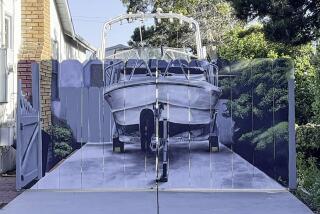SEAL BEACH : Restaurant a Symbol of City Growth Fight
- Share via
When the Seaside Grill last year filed its request to stay open an hour later each night, few realized right away that the matter would become the focal point for two competing views of life in this small community.
The seemingly mundane issue, however, became the subject of two heated City Council meetings because many feared the precedent that the decision would set.
For residents who have long complained that Main Street businesses cause parking, traffic and noise problems, allowing the restaurant with an alcohol license an extra hour would open the floodgate to dozens of other merchants seeking to increase hours and expand services.
For merchants, the issue boiled down to a test of whether the City Council was willing to support a local business at a time when help was needed.
In the end, four of the five council members sided with the residents and denied the Seaside Grill’s request to stay open until 11 p.m.
“What bothers me about this is that (the additional hour) is not that significant. An hour is really not that much,” said Mayor Gwen Forsythe, who voted with the majority at the Jan. 11 meeting. “If we let one (business) have one insignificant hour, we could end up with 35 hours.”
It was this prospect that had residents up in arms. At several packed public hearings, many expressed the fear that their quaint and relatively quiet Main Street might be transformed into a “beer alley” or “another Belmont Shore,” an area in neighboring Long Beach.
Moreover, residents talked of the need to protect the “family atmosphere” and bedroom-community feel of Seal Beach against what some described as the “liquor lobby” seeking to “take over” Main Street.
In that way, some residents sought to tie the struggle over alcohol sales to the larger issue of growth and change in Seal Beach. Comparisons were made between allowing a business to expand services and permitting a builder to erect a new development. Both, residents claimed, can have a negative impact on the city if not aggressively checked.
Most council members--some of whom were elected in part for their anti-growth views--seemed to embrace many of the residents’ concerns.
In rejecting the view that the extra hour would bring needed city revenue, Councilman Frank Laszlo said he had heard that argument before--from developers seeking to build in the city.
At the meeting, Laszlo spoke with pride of Seal Beach’s ranking in one study as the best community in Orange County to raise a family. He attributed the honor to “the residents who protect this city.”
If anyone felt less than protected after the vote, it was some merchants.
To them, the decision underscores their longstanding belief that the city doesn’t adequately support merchants. “Residents come first; businesses come second,” said John Baker, owner of the Nip N Stuff Liquor store.
Council members deny this, pointing out that Seal Beach has low city business fees and no parking meters on Main Street.
Nevertheless, the events of the last few months fit the vision of Seal Beach outlined by former Planning Commissioner Joseph Orsini at a meeting early in the process: “This is a residential area with a commercial strip running through it. It’s not a commercial strip with a residential area” around it.
More to Read
Sign up for Essential California
The most important California stories and recommendations in your inbox every morning.
You may occasionally receive promotional content from the Los Angeles Times.














